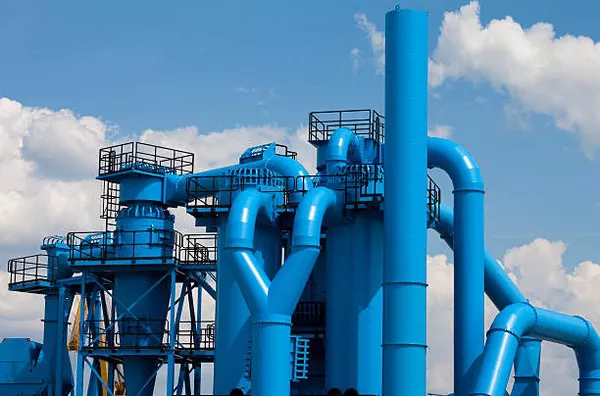Heating, ventilation, and air conditioning (HVAC) systems play an integral role in maintaining comfortable indoor environments in residential, commercial, and industrial settings. Among the various components that constitute HVAC systems, the compressor stands out as a critical component responsible for the effective operation of these systems. In this article, we will delve into the intricacies of compressors in HVAC systems, exploring their functions, types, and importance in maintaining indoor comfort.
Functions of Compressors:
At the heart of every HVAC system lies the compressor, a mechanical device designed to pump refrigerant throughout the system. Its primary function is to compress the low-pressure refrigerant vapor from the evaporator and convert it into high-pressure vapor, facilitating heat transfer. This compressed refrigerant then flows through the system, undergoing phase changes to absorb and release heat, thereby enabling the regulation of indoor temperatures.
Types of Compressors:
Compressors used in HVAC systems can be categorized into several types based on their operational mechanisms. The most common types include reciprocating compressors, rotary compressors, scroll compressors, and centrifugal compressors.
Reciprocating Compressors:
Reciprocating compressors utilize a piston-cylinder arrangement to compress refrigerant vapor. As the piston moves up and down within the cylinder, it alternately compresses and releases refrigerant, generating high-pressure vapor. These compressors are widely used in smaller HVAC systems and are known for their reliability and simplicity.
Rotary Compressors:
Rotary compressors operate on a rotary motion principle, where a rotating element compresses the refrigerant vapor. This type of compressor is compact and operates smoothly, making it suitable for both residential and commercial HVAC applications. Rotary compressors are often preferred for their quiet operation and energy efficiency.
Scroll Compressors:
Scroll compressors feature two spiral-shaped scrolls—one fixed and the other orbiting eccentrically. As the orbiting scroll moves, it compresses the refrigerant vapor trapped between the scrolls, resulting in efficient compression. Scroll compressors are known for their high efficiency, low noise levels, and reduced vibration, making them popular in modern HVAC systems.
Centrifugal Compressors:
Centrifugal compressors are typically used in large-scale HVAC systems and commercial applications. Unlike other types of compressors, centrifugal compressors utilize centrifugal force to compress the refrigerant vapor. These compressors are highly efficient and capable of handling large volumes of refrigerant, making them ideal for high-capacity cooling systems.
Importance of Compressors in HVAC Systems:
Compressors play a crucial role in the overall performance and efficiency of HVAC systems. Here are some key reasons why compressors are indispensable in HVAC systems:
Temperature Regulation:
Compressors facilitate the transfer of heat by compressing and circulating refrigerant throughout the HVAC system. By compressing the refrigerant vapor, the compressor raises its temperature and pressure, enabling it to absorb heat from indoor spaces. This process allows HVAC systems to regulate indoor temperatures effectively, ensuring comfort for occupants.
Energy Efficiency:
Efficient compressors are essential for optimizing the energy efficiency of HVAC systems. Modern compressors, such as scroll and rotary compressors, are designed to operate at varying capacities, allowing them to match the cooling or heating load demand accurately. By modulating their speed or capacity, these compressors can reduce energy consumption during periods of lower demand, leading to significant energy savings over time.
System Performance:
The performance of an HVAC system heavily relies on the reliability and performance of its compressor. A well-maintained compressor ensures consistent cooling or heating performance, maintaining desired indoor conditions regardless of external factors. Regular maintenance, including cleaning, lubrication, and refrigerant charge checks, is essential to ensure optimal compressor performance and prolong its lifespan.
Comfort and Air Quality:
Compressors contribute to indoor comfort by regulating temperature and humidity levels within the desired range. By removing excess moisture from the air, HVAC systems equipped with compressors help create a comfortable indoor environment while preventing issues such as mold growth and indoor air quality deterioration. Additionally, proper filtration systems integrated with HVAC systems further enhance indoor air quality by capturing airborne particles and contaminants.
System Longevity:
The durability and longevity of an HVAC system are closely linked to the reliability of its compressor. Investing in a high-quality compressor and ensuring regular maintenance can extend the lifespan of the entire HVAC system. Routine inspections and timely repairs can help address potential issues before they escalate, preventing costly repairs or premature system replacements.
Conclusion:
In summary, compressors are indispensable components of HVAC systems, playing a vital role in maintaining indoor comfort, energy efficiency, and system performance. Understanding the functions and types of compressors is essential for HVAC professionals and homeowners alike, as it enables them to make informed decisions regarding system installation, maintenance, and upgrades. By recognizing the importance of compressors and prioritizing their upkeep, individuals can ensure the longevity and efficiency of their HVAC systems, ultimately enhancing indoor comfort and quality of life.

